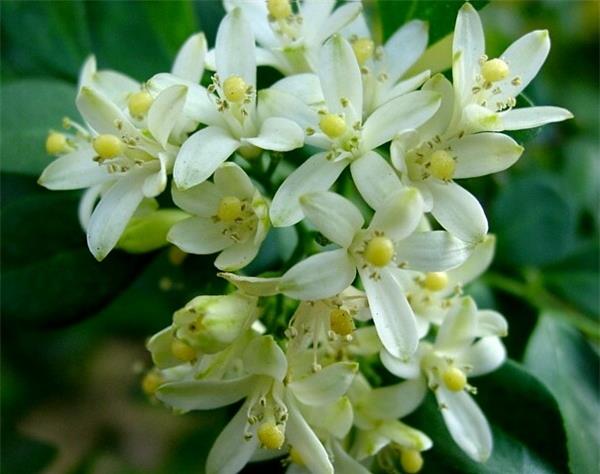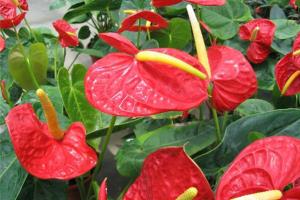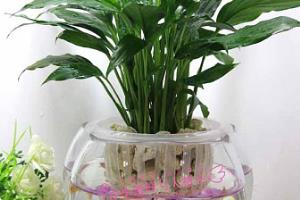Matters needing attention on how to raise and breed Jiuli incense
How to keep Jiuli incense? Jiuli incense is a tropical evergreen tree or shrub with a growth of more than 7 meters. A plant that can blossom all year round. Its leaves are glabrous and glossy, with 3-7 strange pinnate leaves, oval to cuneate-Obovate or diamond-shaped. The terminal can have flowers, corymbose inflorescences, but few flowers, dense and fragrant. Petals are generally 12-18 mm long, curved and white (or freckle). The fruit of Jiuli incense is fleshy, oblong, oval, red, orange, and can grow to 1 inch long.

Matters needing attention in Jiuli incense culture
1, light, temperature: Jiuli incense likes a warm growth environment, but can not be affected by direct sunlight, the best growth temperature is 20: 32 ℃, not cold-resistant, overwintering temperature can not be lower than 5 ℃, too low room temperature is easy to drop leaves, affecting the growth of the next year, less than 0 ℃ may freeze to death; while too high room temperature will affect its dormancy, and then affect its growth and flowering.
2. Soil: Jiuli incense is not strict on soil, so it is appropriate to choose sandy soil which is rich in humus, loose and fertile. The newly planted or turned-pot Jiuli incense should be watered thoroughly and placed in a shaded place for about 10 days, and then planted in a sunny and well-ventilated place.
3. Watering: Jiuli incense likes a humid environment, but potted Jiuli incense is easy to dry because of its limited potted soil. If it is not watered in time, it will die, but it can not be watered too much, too much water will cause overgrowth, and long-term stagnant water can easily cause rotten roots to lead to death. Therefore, Jiuli incense watering should grasp the principle of "no dry, no watering, watering thoroughly".
4. Fertilization: the potted soil of Jiuli incense has limited nutrients. In order for Jiuli incense bonsai to grow well, we need to pay attention to supplement appropriate fertilizer nutrients. The growth of potted Jiuli incense is slow, fertilization should be appropriate, and pay attention to grasp the types and nutrient content of fertilization, so as not to cause overgrowth and affect its beauty.
5. Pest control: the common diseases of Jiuli incense are powdery mildew and iron scourge. if you encounter such diseases, you should pay attention to spraying pesticides in time to facilitate growth. The main pests are red spiders, longicorn beetles, beetles, butterflies, leaf moths and aphids. If you encounter such pests, you should prescribe the right medicine in time to get rid of the harm so as to ensure the normal development of Jiuli incense.
6. Pruning: Jiuli incense will not stop growing after it is molded. If it is allowed to develop without restraint, it will affect its shape and lose its artistic value, so it is necessary to prune and sparse branches and leaves in time in order to maintain its beautiful tree posture. The branches of Jiuli incense have a strong sprouting nature. in order to maintain a beautiful tree shape, attention should be paid to regular pruning.
How to keep Jiuli incense? Pay attention to the six points mentioned above. I believe your Jiuli incense will breed well!
Related
- Wuhan Hospital Iron Tree Blooming Result Was Instantly Frightened by the Gardener Master
- Which variety of camellia is the most fragrant and best? Which one do you like best?
- What is the small blue coat, the breeding methods and matters needing attention of the succulent plant
- Dormancy time and maintenance management of succulent plants during dormancy
- Minas succulent how to raise, Minas succulent plant pictures
- What are the varieties of winter succulent plants
- How to raise succulent plants in twelve rolls? let's take a look at some experience of breeding twelve rolls.
- Attention should be paid to water control for succulent plants during dormant period (winter and summer)
- Watering experience of twelve rolls of succulent plants
- Techniques for fertilizing succulent plants. An article will let you know how to fertilize succulent plants.



